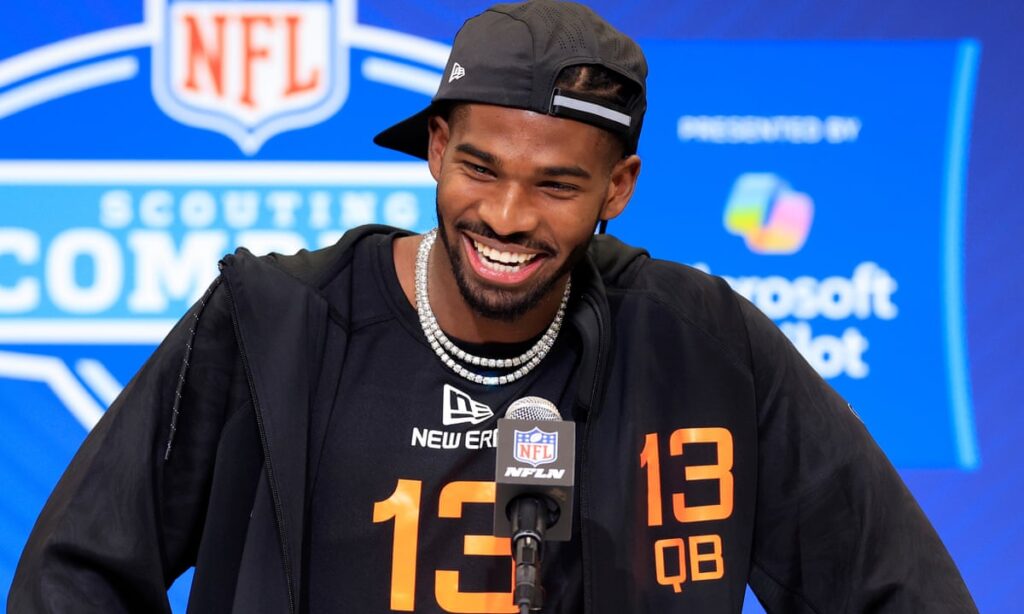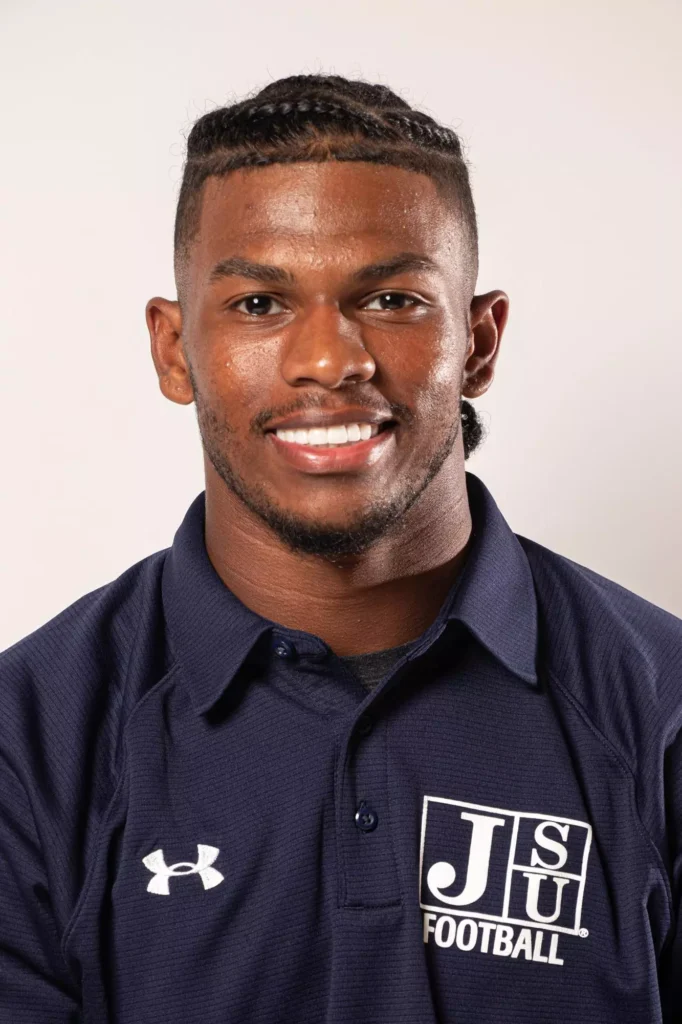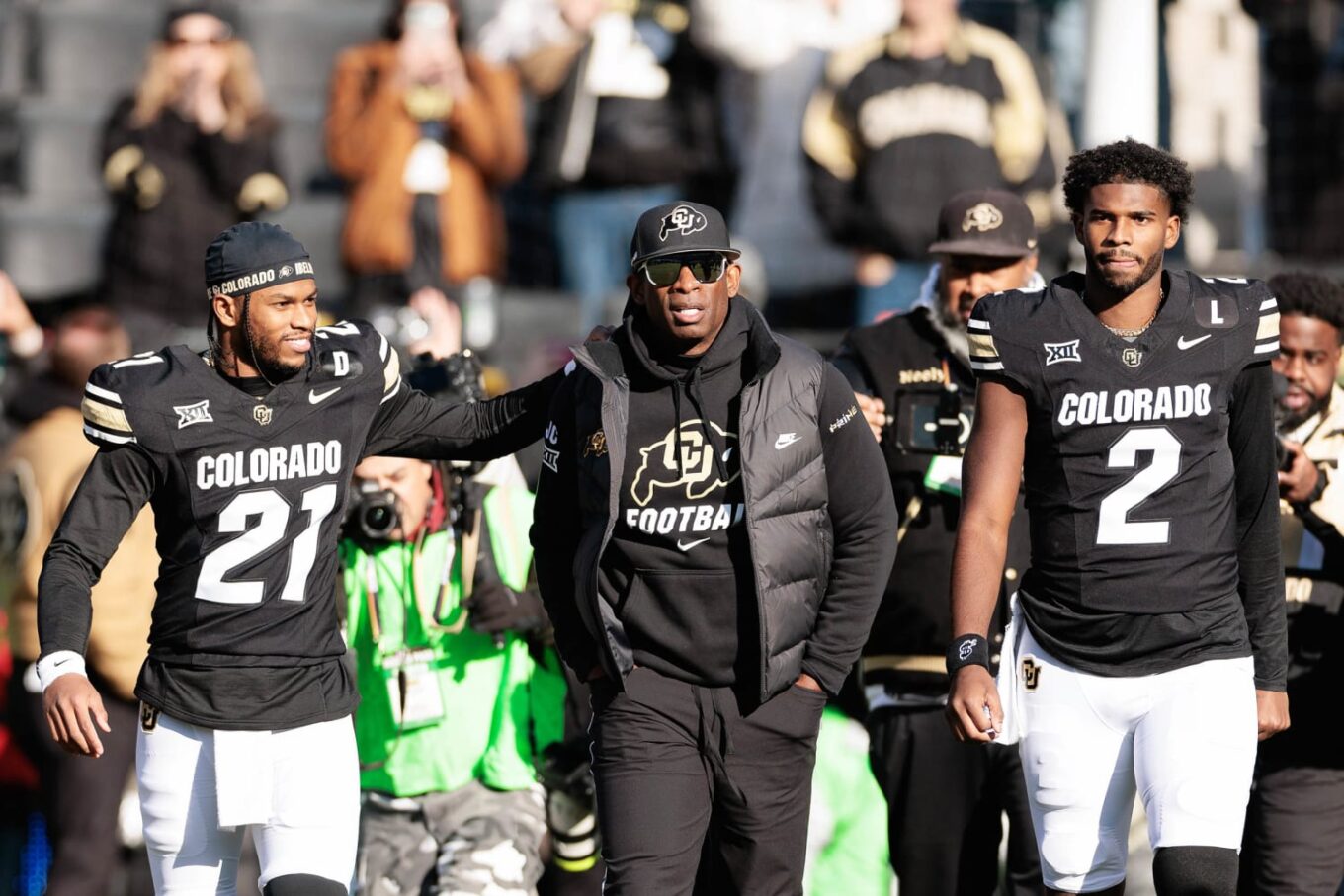In a landmark moment for a family synonymous with swagger, excellence, and generational greatness, both Deion Sanders’ sons, Shedeur and Shilo, have officially entered the NFL. Shedeur, a poised and prolific quarterback who carved his path at Jackson State and Colorado, signed with the Cleveland Browns for $4.6 million. Shilo, the hard-hitting defensive back known for his discipline and field IQ, landed a $2.965 million deal with the Tampa Bay Buccaneers.
While the moment should be one of celebration, a father witnessing his sons fulfill dreams in a league he once electrified, it also illuminates a darker, long-standing undercurrent in American sports: the institutional discomfort with Black confidence, especially when it refuses to bend.
The Shadow of Deion and the Scrutiny of Shedeur
From the outset of his college career, Shedeur Sanders was under a microscope. Despite his exceptional play, his NFL draft journey became less about his measurable skills and more about his persona. Critics labeled him “cocky” and “overhyped”. Ignoring the numbers: over 3,000 passing yards in a single season, a leadership role in revitalizing two programs, and a work ethic inherited from a man who redefined athletic branding.
The son of “Prime Time” never hid who he was; he didn’t conform, didn’t beg for approval, and certainly didn’t dim his light for the comfort of scouts, reporters, or gatekeepers. This refusal to shrink was interpreted not as self-assuredness but as arrogance. A familiar trope in the world of elite Black athletes: that confidence must be couched in humility, that gratitude must be performative, and that generational success must be filtered through the lens of deference.
Shedeur’s draft process became less about what he could do with a football and more about whether he “knew his place.”
A Legacy Too Loud?

There’s a case to be made that Shedeur was never just being judged on his own merits. He was being judged through the prism of his father’s unapologetic legacy. Deion Sanders changed the NFL by making Black excellence too dazzling to ignore but also too bold to digest for those used to controlling the narrative.
Deion didn’t just play the game, he bent it, lit it up, and walked off with a Hall of Fame career while remaining utterly himself. And for that, there’s long been an institutional grudge. A perception that he didn’t “pay his dues” the right way. That he didn’t make himself small enough. Shedeur, by proxy, inherited that tension.
So when Shedeur flashed watches on the sidelines or calmly stated that he expected to go first round, it triggered something deeper. Not just in fans, but in media execs, analysts, and even team insiders, an expectation that the young man should be grateful just to be invited to the table, instead of daring to bring his own.
The False Narrative of Arrogance
Let’s be clear: Shedeur Sanders is not arrogant; he’s self-aware. He understands that in a league that commodifies Black bodies while policing Black voices, knowing your worth is both armor and ammunition. Yet in doing so, he was cast as problematic. Some insiders whispered that he was “hard to manage.” Others questioned his “leadership style.” Yet his teammates and coaches consistently praised his preparation, focus, and poise under pressure.
The NFL has long had a double standard: white quarterbacks with swagger are called “fiery” and “competitive.” Black quarterbacks are “divas” or “egotists.” The dissection of Shedeur’s character was not rooted in facts, it was rooted in discomfort.
Shilo’s Journey: The Quiet Storm

While Shedeur bore the brunt of the media’s gaze, Shilo Sanders forged his path more quietly, but not without challenges. As a safety, Shilo was often overlooked, his success attributed to “pedigree” more than performance. His signing with the Bucs, while deserving, was treated with less fanfare, a reminder that for Black athletes, especially those tied to iconic figures, success is often discounted as nepotism before it’s celebrated as earned.
Shilo’s work ethic, however, mirrored his brother’s; relentless, disciplined, and resolute. Together, they form not just a dynamic sibling duo but a case study in the many ways Black excellence is both celebrated and constrained in America.
The Larger Story: Humbling the Black Man
What happened with Shedeur Sanders is not just about sports; it’s a cultural mirror. History is rife with examples of brilliant Black men, Ali, Iverson, Kaepernick, who were deemed too bold, too proud, too unwilling to be broken. When Black men present their talent without apology, when they know their worth and refuse to kneel before an invisible authority, the system often attempts to humble them, not through merit, but through perception.
In Shedeur, we see a new generation that refuses to accept those terms. And in Shilo, we see quiet defiance turned into undeniable presence. Their father built the blueprint. His sons are now living it, on their terms.
A New Chapter
The entrance of Shedeur and Shilo Sanders into the NFL is more than a continuation of a legacy, it’s a reminder of how far we’ve come and how far we still must go. It asks us to reckon with our discomfort around unapologetic Black excellence and challenges us to ask why some men are told to know their place, even after they’ve earned it.
The league may not have known what to do with Deion Sanders in his prime. But now, they have two more reminders that greatness doesn’t need permission, it only needs opportunity.
And this time, the narrative won’t be written for them. They’re taking the pen, turning the page, and redefining what legacy, power, and pride look like in the NFL and other areas.
Also Check Out



Leave a Reply